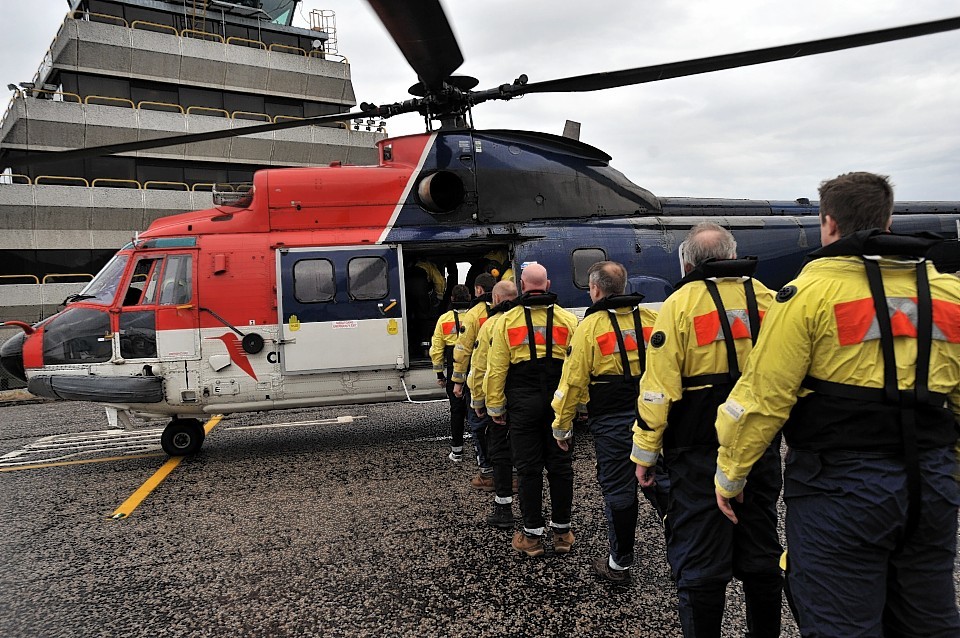Oil and gas workers need more help from the Scottish Government to ensure they are tested as a priority amid a growing number of cases, a north-east politician has claimed.
It comes after new figures from trade body Oil and Gas UK that show more than 12,000 staff are still working offshore during two rotations, amounting to 40% of the total workforce across 147 platforms.
Operators including Technip have confirmed several coronavirus cases on board their North Sea vessels while other companies have now suspended production during the outbreak.
The Scottish Conservative shadow minister for business, innovation, and energy and Aberdeenshire West, Alexander Burnett MSP, questioned the Scottish Government over concerns about the welfare of workers in the North Sea.
In its reply, the Scottish Government said it was hoping to increase the testing capacity for those in the industry but its priority was workers in the health and social care sector.
Mr Burnett said: “The industry needs more help from the Scottish Government to ensure its workers are a priority when it comes to testing for Covid-19.
“Many of these workers may have the virus but still not yet know and this must be addressed to limit the spread.
“Operators are doing their best to bring manning levels to a minimum while still ensuring that operations are run safely.
“It means there is more chance of workers being in single cabins but there will inevitably be times where single occupancy just isn’t possible, which is why offshore workers must be treated as a priority during these worrying times.
“Companies are looking for the Scottish Government to give them clarity on testing and this must be done with urgency to ensure the protection of workers against the coronavirus outbreak.”
Many of these workers may have the virus but still not yet know and this must be addressed to limit the spread.”
Alexander Burnett
In his response, energy minister Paul Wheelhouse said: “We are working hard to increase the capacity to use testing to get critical workers in isolation back to work, but we will have to make difficult choices and currently we need to prioritise the health and social care sector.
“We continue to work with NHS boards and others to increase testing capacity.
“We continue to engage with Oil and Gas UK, trade unions and other key industry stakeholders on measures to support the safety of those working in the industry.”
Call for clarity
Representative industry body Oil and Gas UK has stated sector-specific guidance would be “extremely helpful” in providing clarity and advice for the industry but acknowledged that NHS workers and frontline carers take priority.
OGUK HSE Director Trevor Stapleton said: “NHS workers and frontline carers take priority and we appreciate continued efforts by governments to scale up testing capabilities.
“Our industry stands ready to support any validated testing initiative in order to ensure the health of our critical workforce both on and offshore.
“We need this to provide assurance to the workforce before they go offshore and to ensure that those who are self-isolating are able to return to work as soon as possible.
“The offshore oil and gas sector provides a vital service enabling residential, hospital, care home and industry energy demands to be met 24 hours a day, 365 days a year and its ongoing operation is essential for everyone living in the UK in these challenging times.”
A Scottish Government spokesman said: “Testing has three main aims – to support the care of those most seriously ill, to support essential health workers to get back to and stay in work and for surveillance – to tell us how the virus is spreading.
“We are working hard to increase testing capacity. We are also part of a UK-wide programme to significantly increase testing capacity for key workers.”
“As part of the UK Government’s activity, a drive-through testing centre will open in Aberdeen on Sunday.
“At present the priority for these centres is health and social care workers, but other key workers are also being offered tests.
“Other solutions such as home testing kits are being actively explored.”

